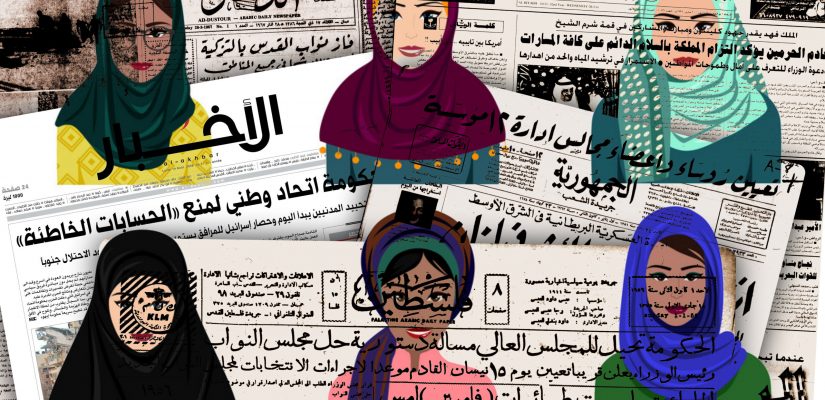
“Our Women on the Ground”: Giving Voice to Women Journalists from the Arab World | (dot)gender

(dot)gender | A space by LORENA STELLA MARTINI
How is it like to be a reporter in the Arab world, covering daily life as well as conflicts in war-ravaged countries such as Syria or Yemen? But, even more specifically, how is it like to do it as a woman coming from the region?
“Our Women on the Ground – Essays by Arab women reporting from the Arab world” (ed. By Zahra Hankir, 2019) collects the experiences of several Sahafiyāt – female journalists in Arabic – whose gaze upon the region and way to live and narrate it is intimately shaped by their gender and by their origins.

Not only does their identity make it hard and challenging for them to pursue a career in a male-dominated field such as journalism, but their life choice is also often seen as hazardous and defiant towards the traditional social expectations regarding women, thus often exposing them to tensions within their family circle as well as within society at large.
Yet at the same time, what emerges from this collection is that Arab – and more generally Middle Eastern – female journalists can enter rooms where their male or international colleagues are not allowed, and give voice and space to a big part of the population whose perspective tends to be neglected for lack of understanding and awareness as well as for the impossibility to explore it closely as the Sahafiyāt can do while drawing on their composite, intersectional identity. This is why their words are deeply needed in order to get a more comprehensive and less stereotypical and orientalist picture of what is going on in the region, in war zones just as in daily life. And this is indeed the mission of this collection of essays, which provides the reader with a tour of the Arab region through the eyes and feelings of its female reporters.
This does not mean dealing with women’s issues – or at least, not necessarily and not all the time – but simply yet still uncommonly adopting another point of view which can help the observers to look at the full picture. Far from being a niche whim, this is an essential first step towards more inclusive societies, in the Arab world as well as elsewhere.